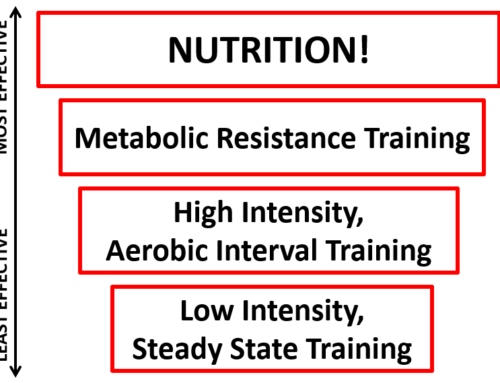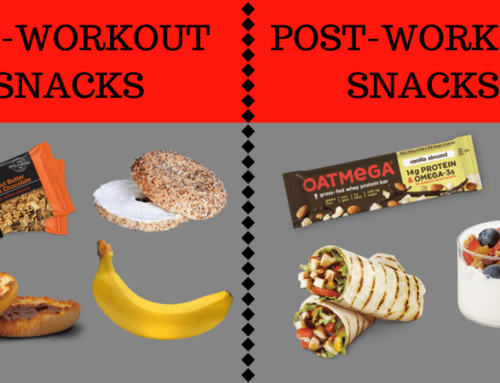Every March, the Academy of Nutrition and Dietetics celebrates National Nutrition Month® by helping Americans understand the importance of making informed food choices and developing sustainable eating habits. This year’s theme is “Put Your Best Fork Forward”, acting as a reminder that every bite counts. Let me show you how making one or two healthy modifications at each meal can make a big impact.
Breakfast
| 2 eggs, fried with 1 tablespoon butter
2 slices whole grain toast with 1 tablespoon butter 1 medium piece of fruit |
2 eggs, scrambled using olive oil spray
2 slices whole grain toast with no butter 1 medium piece of fruit |
| 625 calories, 60 grams carbohydrates,
20 grams protein, 34 grams fat |
420 calories, 60 grams carbohydrates,
20 grams protein, 11 grams fat |
Lunch
| Turkey Sandwich:
2 slices whole grain bread 2 tablespoons mayonnaise 4 slices deli turkey 1 slice low fat cheese Lettuce and tomato 1 (5.3oz) container full fat Greek yogurt |
Turkey Sandwich:
2 slices whole grain bread 2 tablespoons mustard 4 slices deli turkey 1 slice low fat cheese Lettuce and tomato 1 (5.3oz) container non-fat Greek yogurt |
| 695 calories, 44 grams carbohydrates
48 grams protein, 34 grams fat |
445 calories, 44 grams carbohydrates
48 grams protein, 4 grams fat |
Dinner
| 3 oz Balsamic Chicken
1 cup brown rice ½ cup vegetables, pan-fried with 1 tablespoon butter |
3 oz Balsamic Chicken
2/3 cup brown rice 1 ½ cups vegetables, steamed or roasted |
| 620 calories, 77 grams carbohydrates
32 grams protein, 19 grams fat |
490 calories, 72 grams carbohydrates
32 grams protein, 4 grams fat |
Totals
| 1,940 calories, 181 grams carbohydrates
100 grams protein, 87 grams fat |
1,355 calories, 176 grams carbohydrates
100 grams protein, 19 grams fat |
By making the small changes listed above, you would save 585 calories and 68 grams of fat in one day! Think about how significant that is. Caloric intake only needs to exceed 3,500 calories of your total energy expenditure to gain one pound, and vice versa to lose a pound. Over the course of a week, you would save 4,095 calories and 476 grams of fat, while eating essentially the same food!
Healthy modifications can go a long way, but you can simplify your eating plan even more. Focus on mindful eating: eat when you’re hungry and stop when you’re pleasantly full. We know that’s often easier said than done, which is why we use creative tools to help clients develop their mindful eating skills. The Hunger Scale is one such tool.
The Hunger Scale is used to assess our hunger cues before and after eating. The objective is to always stay between a 3 and a 6 on the scale. When we allow ourselves to get too hungry (a 1 or 2 on the scale) we often make poor food choices and overeat (a 7 or above). Practice mindful eating and stop at 80% full, or a 6 on the hunger scale.
No matter your goals, start by making small changes to your eating habits – one forkful at a time. Attend our Facebook Live event on Wednesday, March 29th to learn about common misconceptions when it comes to dietary restriction and weight loss.




